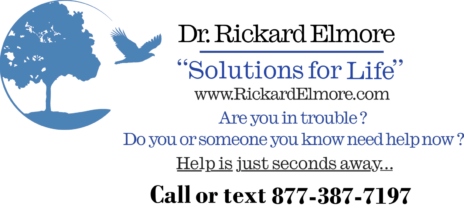In recent years, hallucinogens have become more and more popular for treating addiction. Many find this hard to believe due to its potential risky effects. Those who currently struggle with addiction themselves may be hesitant to try experimenting with another drug in order to gain sobriety. Unfortunately, since the clinical use of hallucinogens is not legal in the United States, there is not enough information out there regarding its benefits for treating addiction. This leads many people to as, how is it that hallucinogens have the ability to both cause harm and treat addiction?
What are Hallucinogens?
Hallucinogens are referred to as psychoactive agents. They are known for their ability to cause extreme hallucinations. They are typically found in certain kinds of plants/mushrooms. However, they can also be man-made. As researchers understand it, hallucinogens cause a temporary disruption of the communication between neurotransmitter systems throughout the brain and spinal cord. These systems control sensory perception, sleep, hunger, sexual desires, mood, and muscle control. Hallucinogens are usually separated into two different categories that have various, differing effects. These categories are:
-classic hallucinogens (LSD, psilocybin): These can be a clear or white, odorless material that is synthesized from lysergic acid which is derived from a rye fungus. It causes both sensory and imagery distortion. They can also be in the form of mushrooms found in various parts of the world including certain parts of the United States.
-dissociative drugs (PCP, ketamine, DXM): Originally created in the 1950s as a form of anesthesia for surgery, dissociative drugs cause out-of-body experiences, disconnections from the body, and a general out-of-control feeling through the body.
While researchers know that this particular drug can cause significant hallucinations to its’ users, they also know that not very much is known about its overall causes and effects. Due to this complication, it leaves plenty of room for myths, speculations, and opinions. However, many have found their effects (when done safely) to offer lasting, highly beneficial results on their overall mental health.
How Does it Work?
For therapeutic use of hallucinogens, it has been reported that even a single use of hallucinogen-assisted therapy was claimed by its users to lower the desire to use drugs/alcohol. While the scientific reasoning behind this is still not well understood, many professionals and users find its’ effects to be trustworthy when conducted properly.
Proper conduction of hallucinogenic treatment is vital. One component that is incredibly important to monitor during this experience is considering the set and setting of the experience. The set in this scenario is referring to the mood, tone, and expectations for what is to come. Setting refers to the environment where the session is taking place and the relationship dynamic between the user and the trained professional. These particular factors are vital for the session to be effective. If not monitored, the individual could potentially have the opposite desired effects. These include stress, anxiety, or paranoia. Due to the vulnerable, hypersensitive state, the person is in while under the influence of hallucinogens, it is important to ensure a safe, comfortable, and positive environment for the user.
The therapeutic use of hallucinogens has also been shown to produce mood-elevating thoughts. It can also cause users to form new-found beliefs of overall well-being and satisfaction in life. Mindsets like these can potentially help individuals struggling with addiction to have more inspiration, hope, and optimism when it comes to their recovery. However, researchers advise that more research still needs to be conducted regarding this treatment modality.
Is This Treatment Right for Me?
The hallucinogenic treatment modality is not for everyone. While it does have to ability to cause useful benefits for addictions and other conditions, that does not mean it will be the best treatment option for your specific recovery process.
This particular treatment process is ideal for individuals who are struggling with addiction to the point where their withdrawals and cravings make it nearly impossible for them not to use again, whether they want to or not. If an individual is trying to stay sober but cannot control their urges and cravings, hallucinogens may be beneficial in cases like these. Hallucinogens are able to allow people to safely experience the high of a drug, thus curbing their craving to use a more dangerous drug in a dangerous setting again. Due to their ability to create new, positive beliefs and mindsets, they leave the user feeling much more hopeful and optimistic about their newfound path of sobriety.
Rising in popularity for therapeutic uses and purposes, hallucinogens are substances that are classified as psychoactive agents. They cause hallucinations for many, if not all of its users. While researchers still are not entirely sure of how it affects the body, they do know that hallucinogens cause temporary disruptions between neurotransmitters. This then causes the users to experience sensory hallucinations through both imagery and sensation. Some users even reported feelings of sensations of overall well-being. Many users who have used this substance for addiction treatment have found its benefits to significantly help them in recovering from their addiction. This treatment modality may not be for everyone, however. Understanding how this treatment works can be complex, but here at Rickard Elmore Treatment Strategies, we are here to offer more information for you. Our facility in Newport Beach, California offers many treatment modalities, including hallucinogenic treatment. Call us today at (877) 387-7197 to learn more information about which kind of treatment might be best for you during this time.
